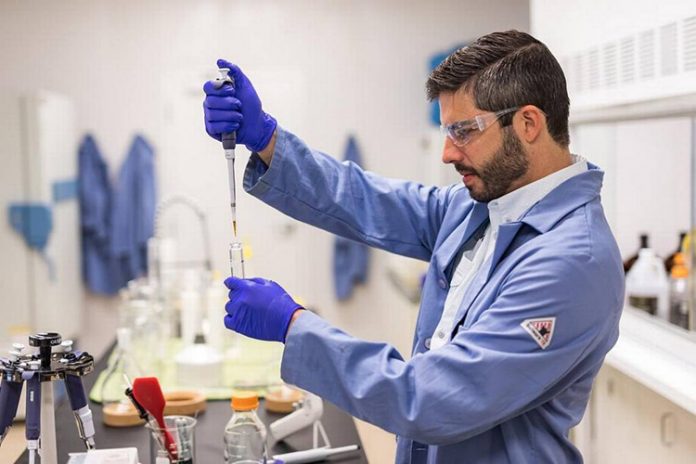State lawmakers are moving to ensure medical marijuana patients know what they are getting — and getting what they paid for.
On a 7-1 vote the House Committee on Military, Veterans and Regulatory Affairs approved legislation Monday to require the Department of Agriculture to test what is being sold at state-regulated medical marijuana dispensaries. What the agency is looking for includes mold, disease-causing bacteria and “other harmful adulterants.”
SB 1420 also would require testing for other chemicals used in the growing of the plants or in the processing, whether into a product to be smoked or as a liquid, edible, vapor or tincture. In that case, however, the drug could still be sold as long as consumers are made aware.
And the legislation would require that whatever is sold be properly labeled, a requirement that would include the amount of both THC, the psychoactive element in the drug, as well as other beneficial chemicals like CBD oil.
Separately Monday, the full House voted 52-5 to make it illegal to sell medical marijuana or products that are in packages that are “attractive to minors.” That includes the use of a cartoon, images of minors, or symbols or celebrities that are commonly marketed to minors.
That vote on HB 2064 came over the objections of Rep. Pamela Powers Hanley, D-Tucson, who said the language is “way too vague” and would put a burden on small businesses that produce edibles and other marijuana products. And she said there are other solutions to the problem.
“If you don’t want a child to get a THC-infused gummy bear, you keep it locked up,” she said. That bill now goes to the Senate.
In testifying on the testing bill, Sen. Sonny Borrelli, R-Lake Havasu City, told colleagues that the state is long overdue in coming up with some safeguards.
Voters approved a measure in 2010 to allow those with certain medical conditions to obtain up to 2 1/2 ounces of marijuana every two weeks from a dispensary. But Borrelli pointed out that no one is protecting consumers.
“It’s pretty much the Wild West out there,” he said. “To do nothing is not the answer.”
Borrelli specifically cited Eagle 20, designed to prevent fungus on plants which he said cannot legally be used on tobacco.
“Why? Because it’s a heavy carcinogen,” he said. “Well, there’s nothing in federal statutes or federal regulations on marijuana to prohibit that type of product.”
All that, Borrelli said, leaves the state unable to restrict its use.
“But I think the patient has a right to know that what they’re taking might be making them sicker,” he said.
Kevin DeMenna, lobbying for the Arizona Dispensaries Association, said he agrees with what the bill does — up to a point.
“It’s a consumable product and it needs to be labeled,” he told lawmakers. But DeMenna said it isn’t that simple.
“There’s mold in everything,” he said, suggesting the unanswered question is what levels are acceptable — and what levels are harmful. “I don’t know what those are.”
Then there’s the question of potency testing.
Hope Jones, chief scientific officer for C4, a Mesa cannabis testing firm who would be able to do the kind of testing for the Department of Agriculture, said patients need that information.
Jones said her lab gets called on by parents of children who are allowed to use medical marijuana but question why their youngsters are no longer responding to their medicine.
Normally, she said, it’s in the form of a tincture that can be put beneath a child’s tongue. And she said it’s sold with a label that claims its concentration of CBD, a non-psychoactive compound derived from the marijuana plant.
In one case, Jones explained, she tested six bottles brought in.
“All but one we’re completely negative,” she said. “This parent paid nearly $1,000 for this medicine and it was a fraud.”
Rep. Noel Campbell, R-Prescott, said he’s never been a fan of legalized marijuana. And he said he believes that the medical program is being abused by those who simply want the drug for recreational purposes.
But Campbell also said that what’s being sold today is “so much stronger” than what was available in the 1960s. He said that’s precisely why someone needs to be checking marijuana and marijuana products for the concentration of THC.
Jones, however, said anyone who needs marijuana for true medical purposes should probably not be smoking it.
“The purpose of having the concentrates and various concentrations is for proper dosing,” she said. “It is very, very hard to dose accurately when you’re consuming as a smoke.”
Borrelli said he expects the legislation, which already has been approved by the Senate, to be amended when it now goes to the full House.














